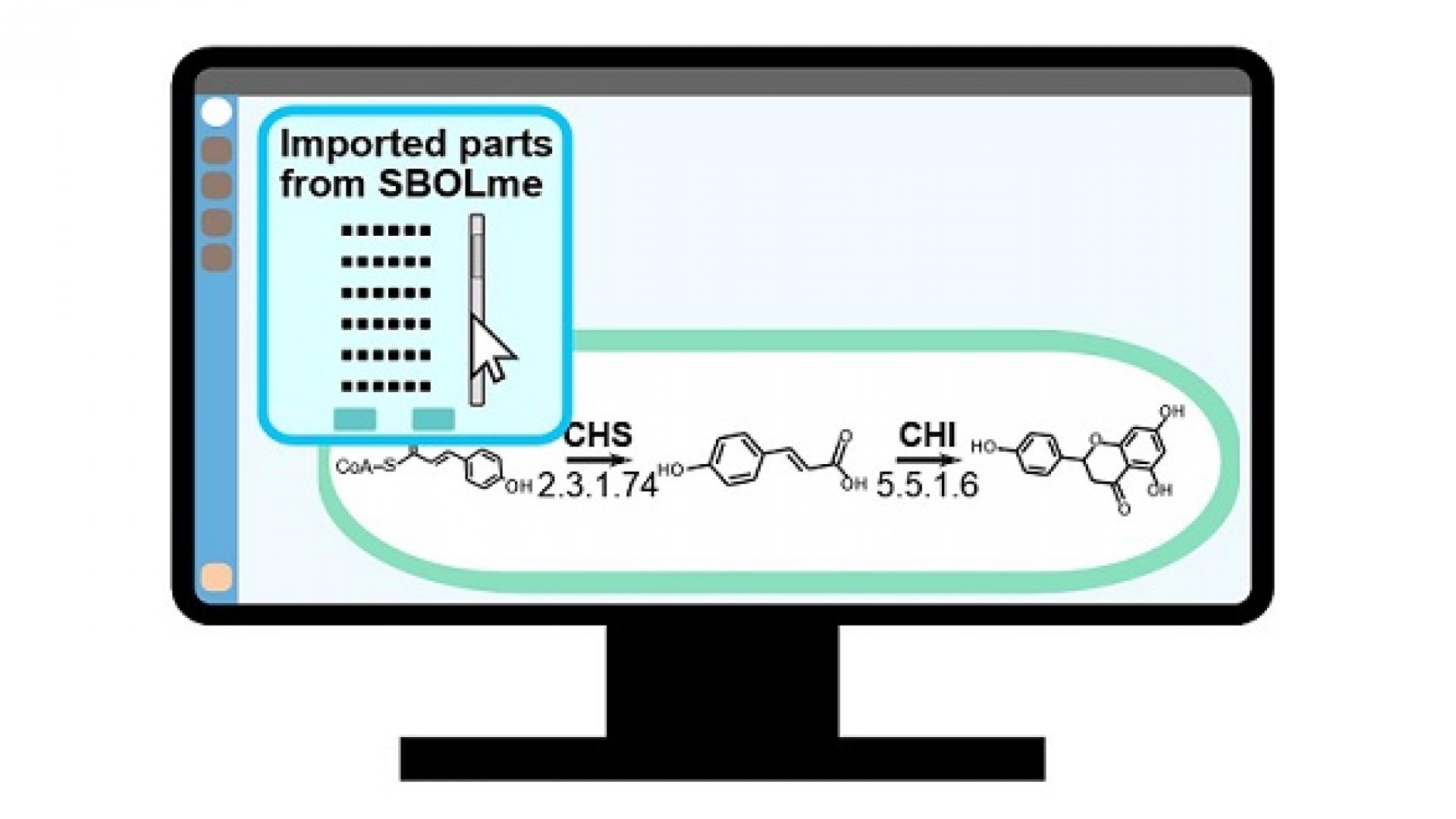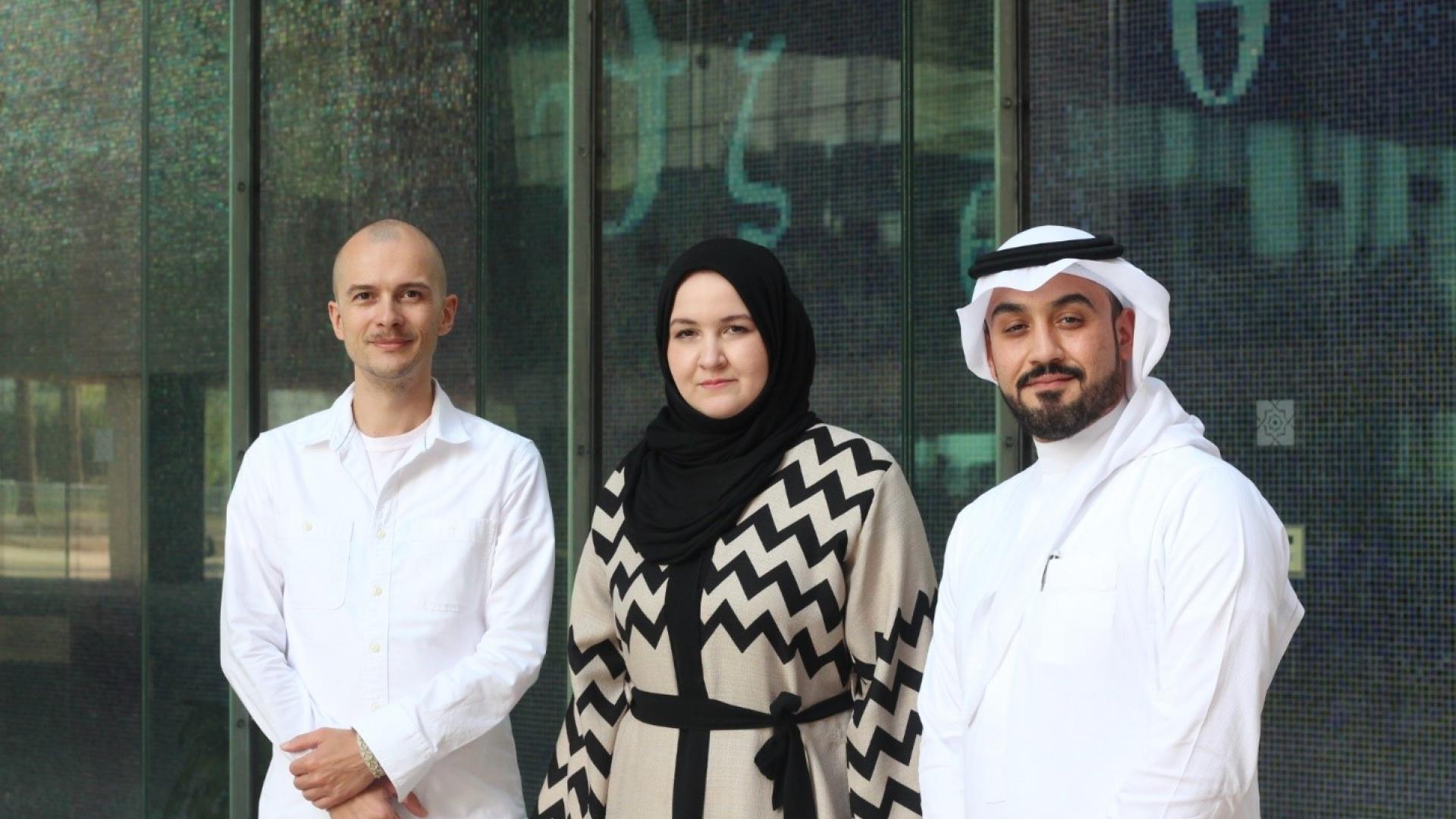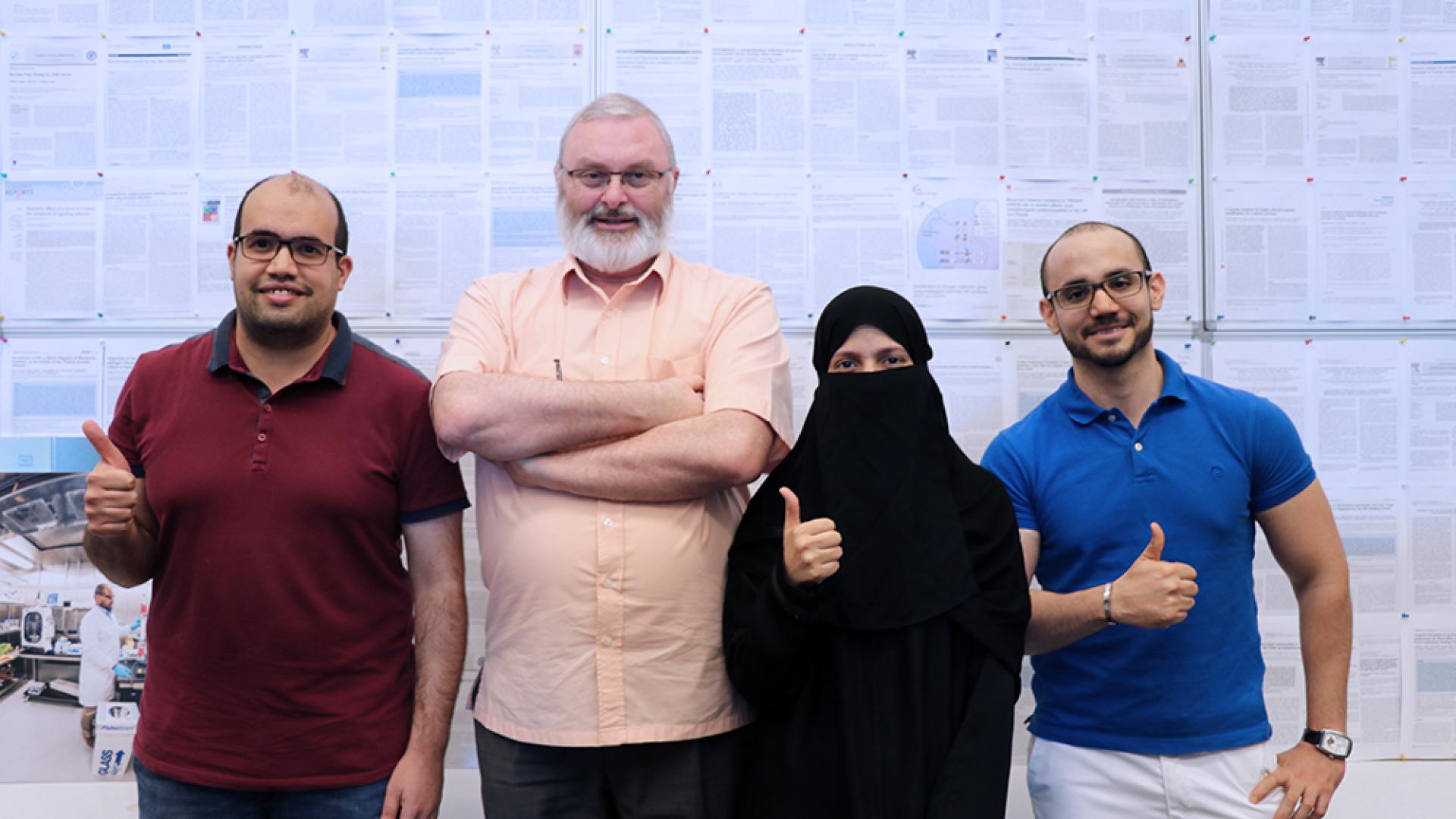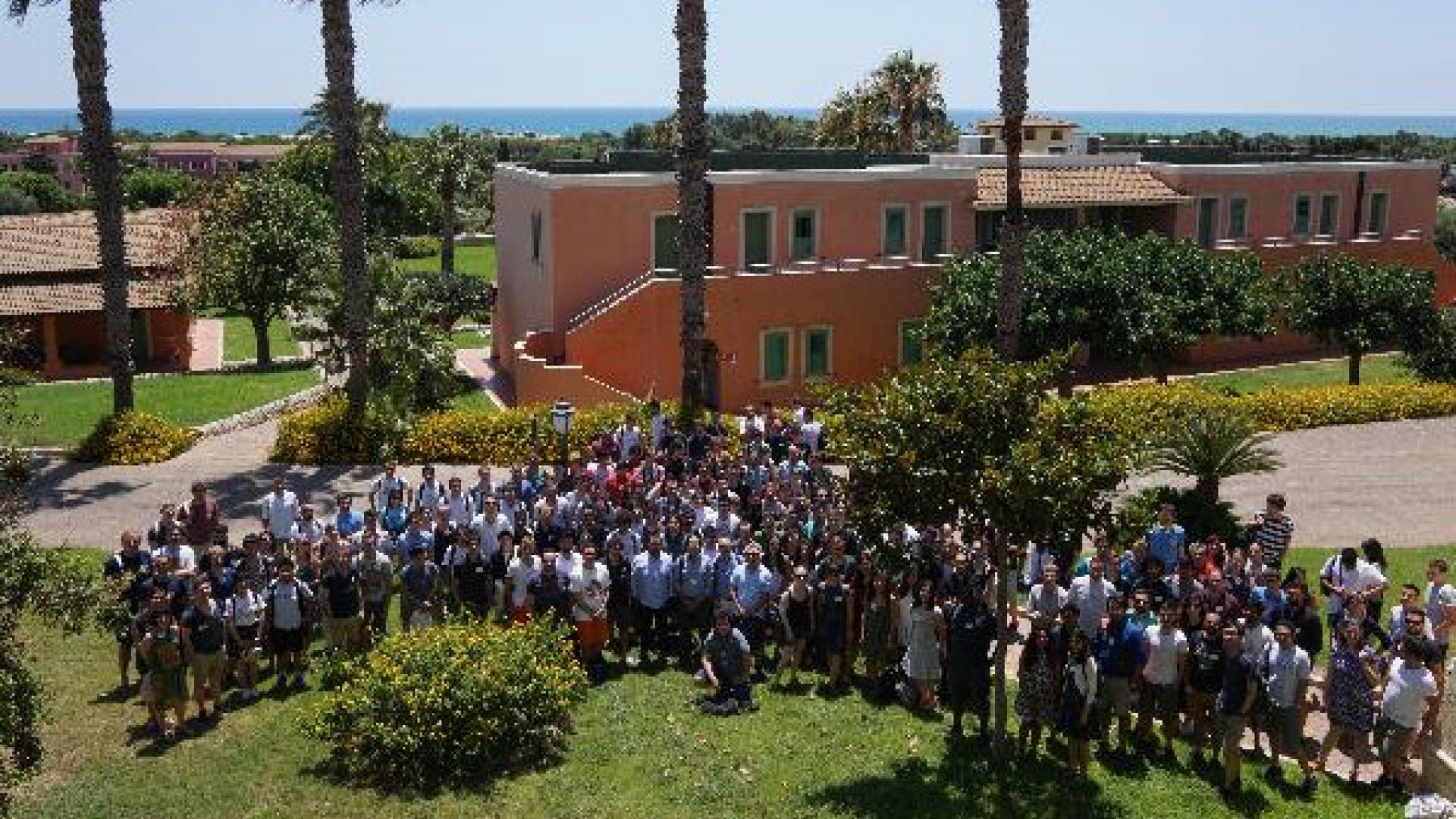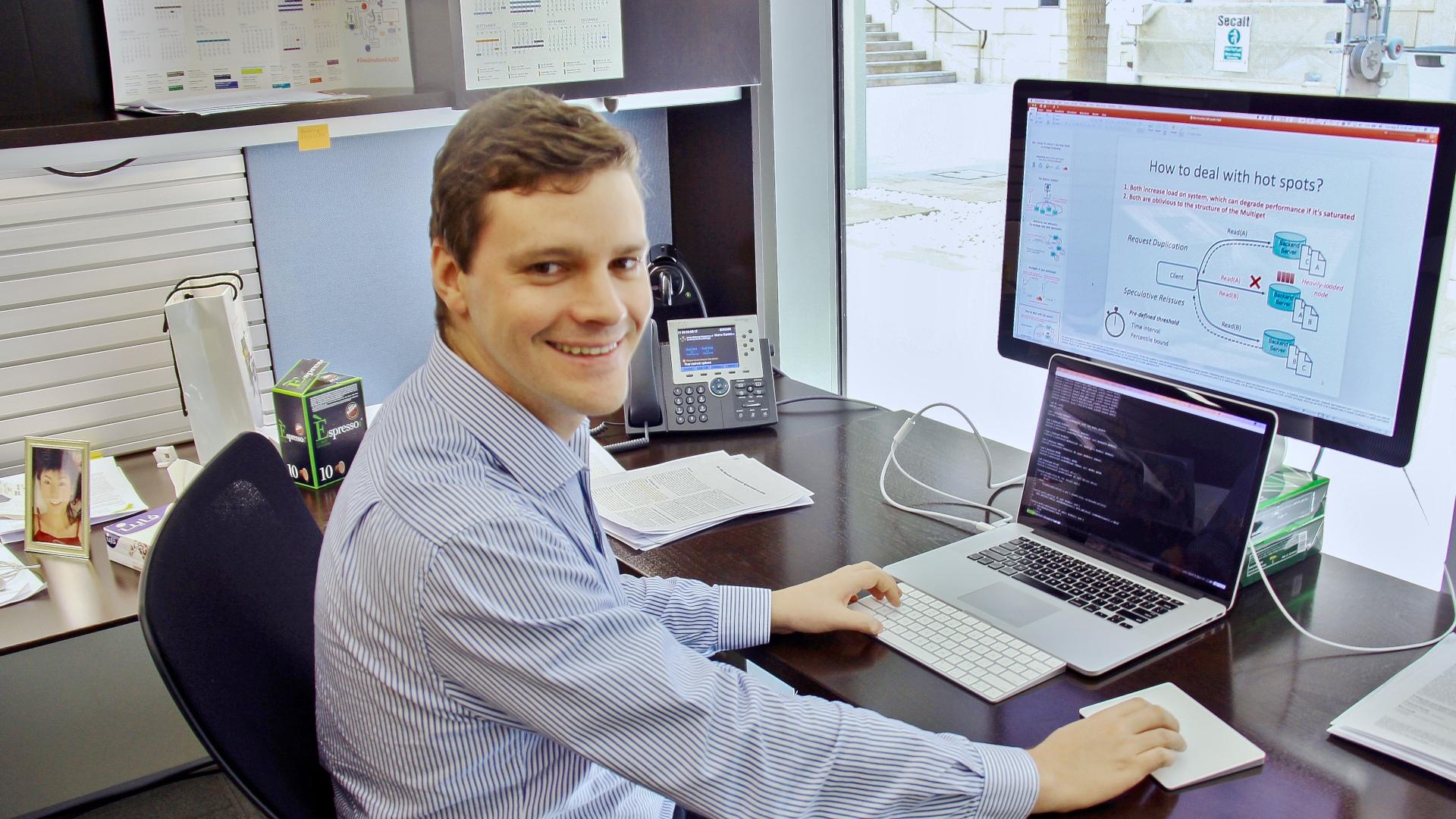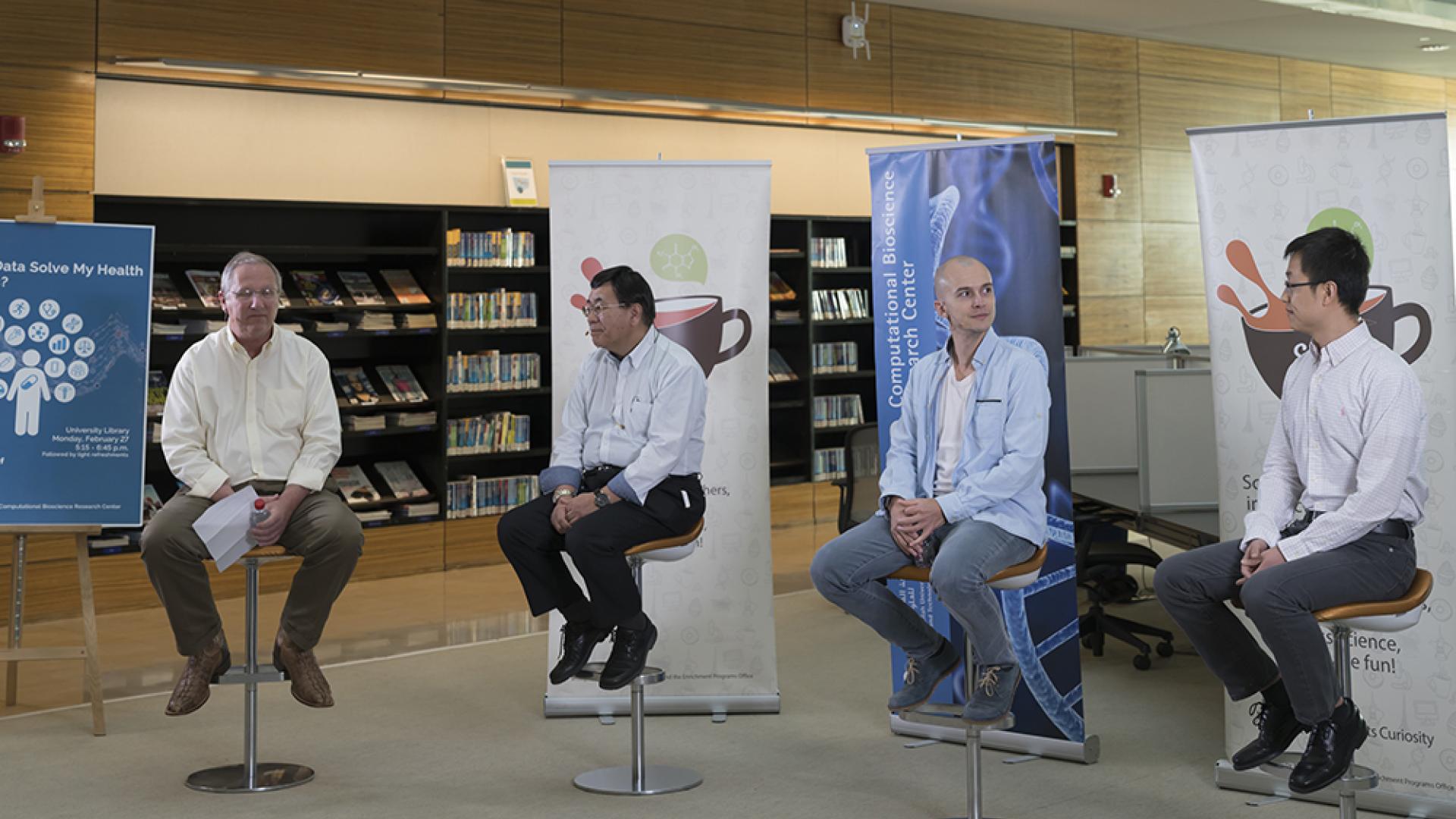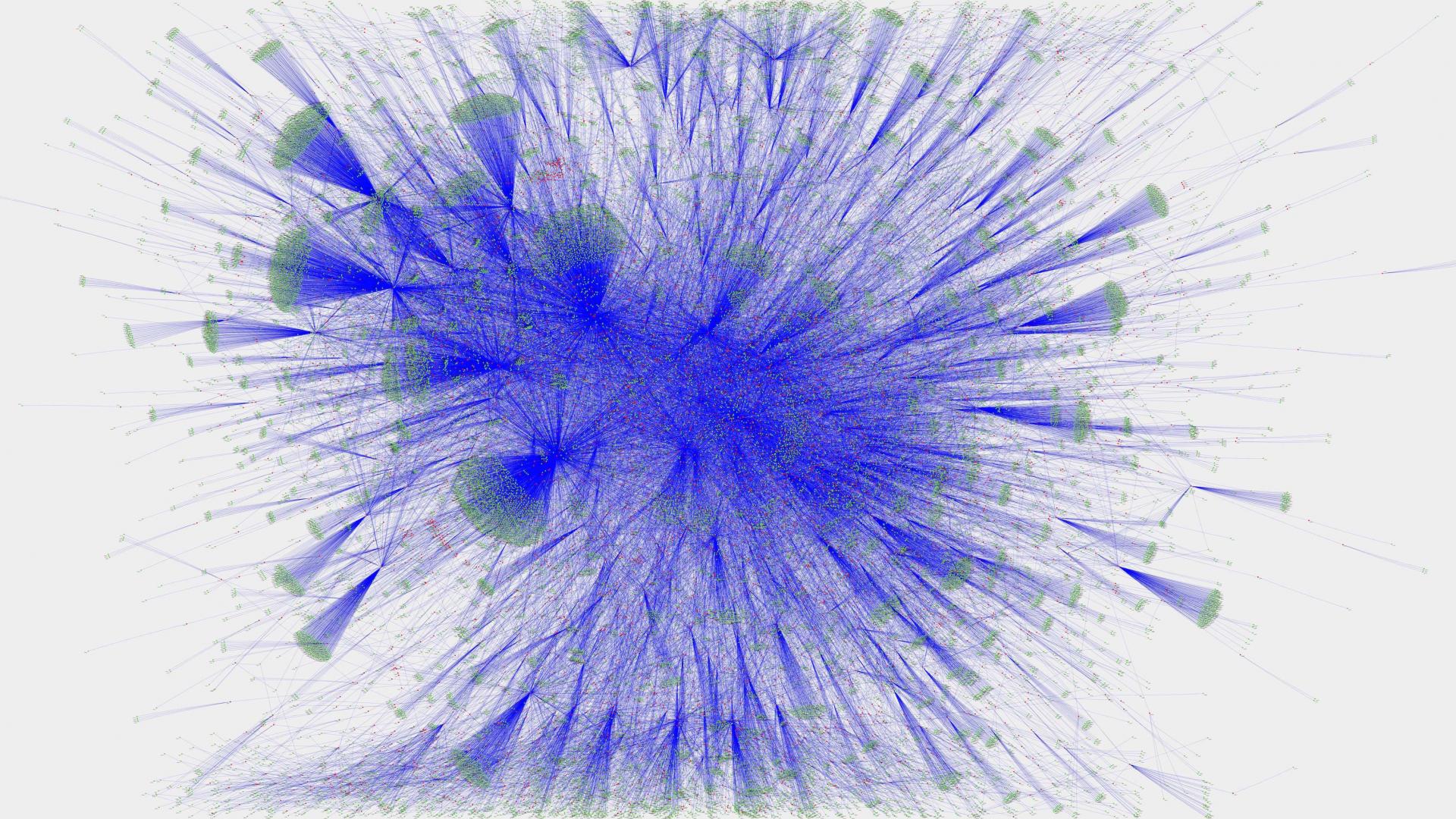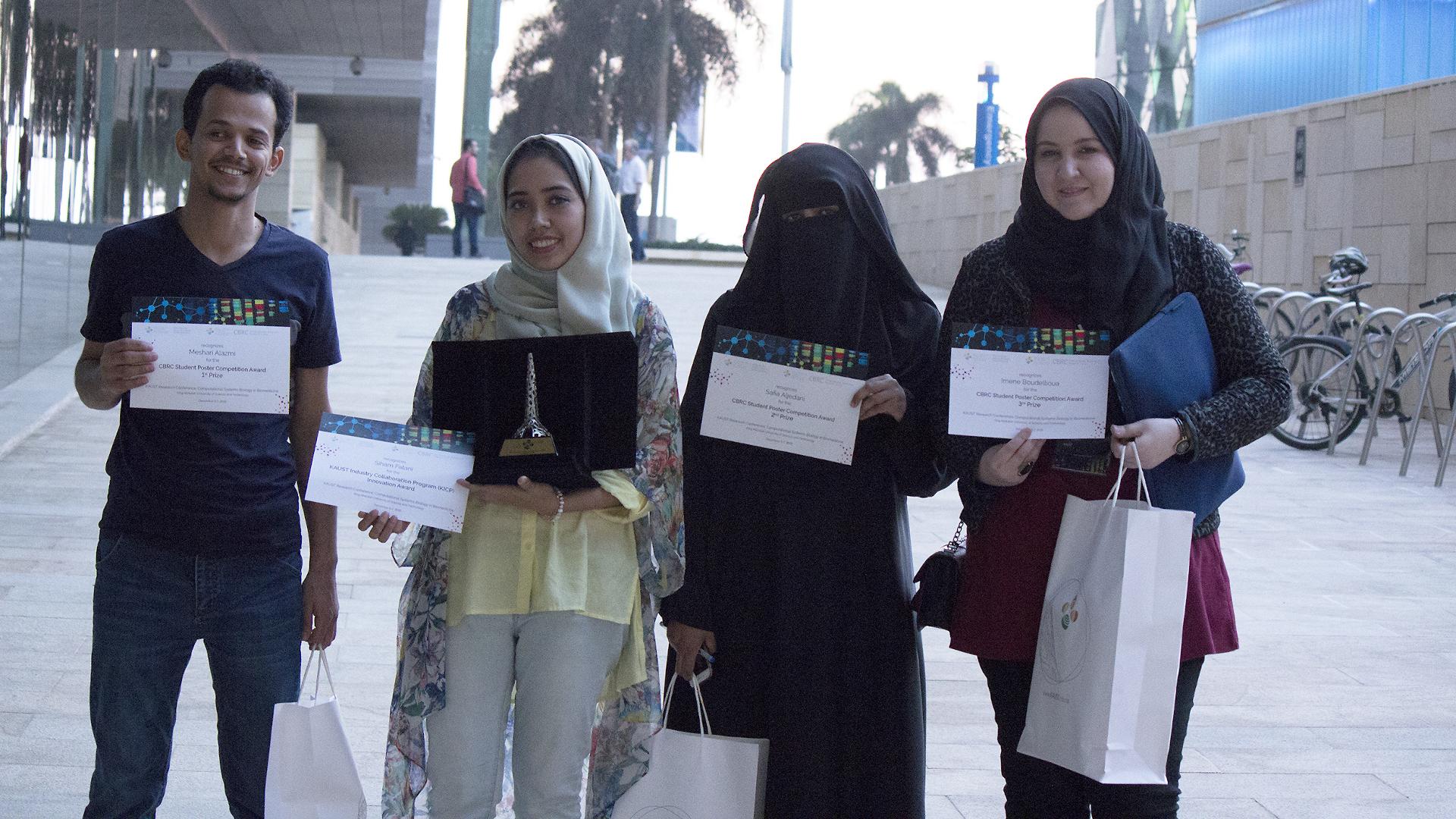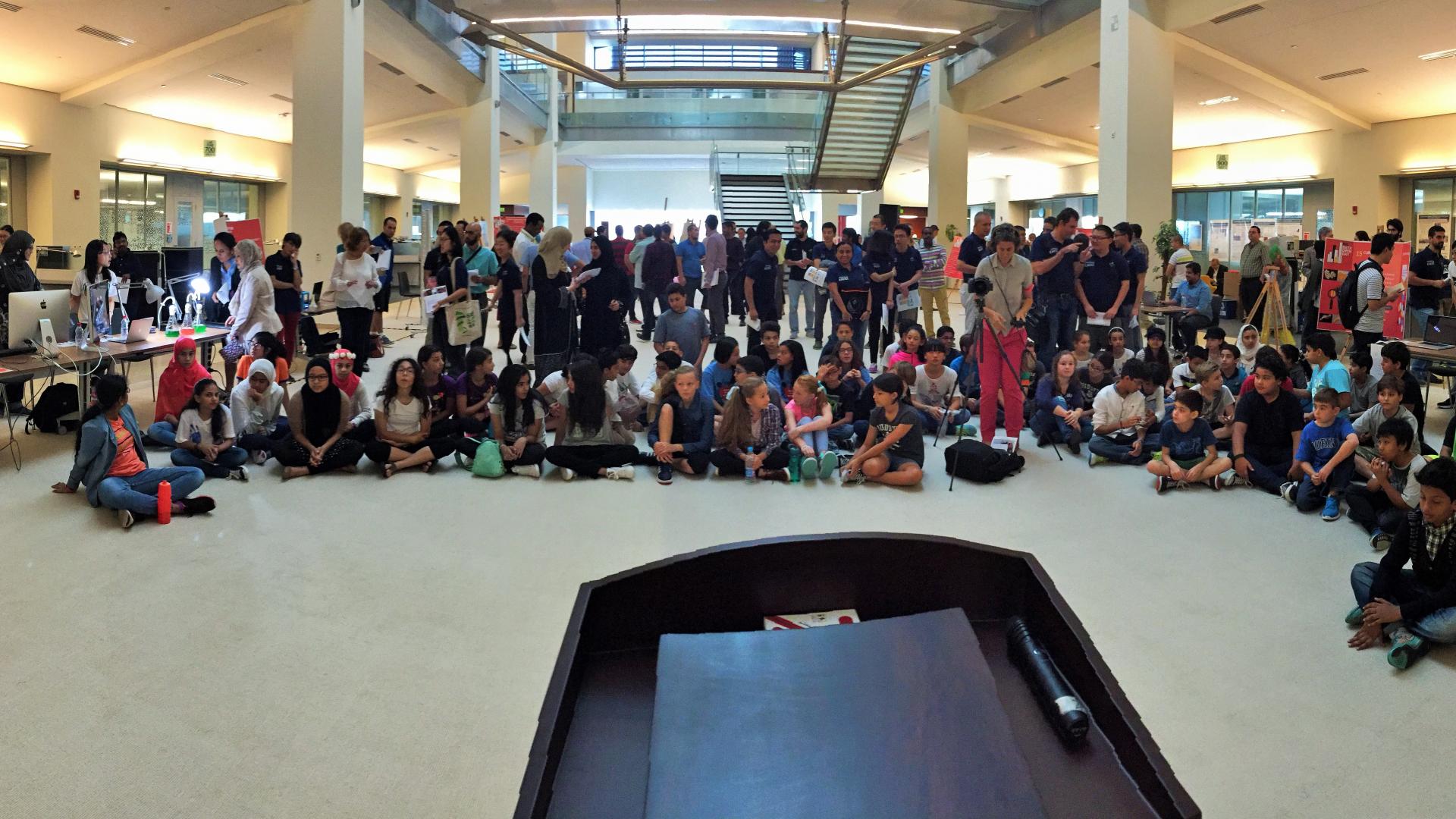A repository of metabolic information provides a quick reference tool for designing useful synthetic biological systems.
It is estimated that each year, around eight million children worldwide are born with a serious genetic condition that is either life-threatening or debilitating. These disorders are caused by underlying mutations affecting the genetic makeup contained in our cells, and according to experts, half of the variations responsible for these diseases are still unknown. Because of the lack of information on these disorders, physicians are often unable to pinpoint the exact molecular cause of the disease or opt for the most appropriate treatment.
For Ph.D. students Arturo Magana Mora, Haitham Ashoor and Olaa Motwalli, April 2017 was a particularly nerve-wracking month. After years of hard work and sleepless nights, they finally defended their thesis, bringing them one step closer to graduation.
Adel Bibi and Matthias Mueller have been accepted to participate in the ICVSS (International Computer Vision Summer Schoole) 2017 in Italy. Admission into this summer school is quite competitive in the vision community.
A new tool uses genetic and clinical information to find the root cause of unexplained illnesses.
We live in a connected world where networked systems play an increasingly important role. These systems, which are the foundational pillars of our modern digital lives, are the result of some remarkable technological advancements and progress in computer science over the past three decades.
Professors Takashi Gojobori, Xin Gao and Robert Hoehndorf spoke about big data and human health at the Sci-Café event held on February 27. Their talk, which was moderated by James Calvin, Vice President for Academic Affairs, aimed to answer the question, "Can Big Data Solve My Health Problems?" This event was open to all members of the KAUST community.
An efficient wireless signal optimization scheme achieves peak performance for next-generation mobile communications.
The ultimate answer is ScaleMine, cost-effective and agile scalable parallel frequent subgraph mining in a single large graph. Panagiotis Kalnis, Professor of Computer Science (CS), and the team from the KAUST Extreme Computing Research Center (ECRC), under the Computer, Electrical and Mathematical Sciences and Engineering (CEMSE) Division signed this novel approach.
Prof. David Keyes and his team proposed a GPUs light architecture to solve systems of multiple equations involving a large amount of data. Broadly used in computer gaming, mobile, and PC graphics - GPUs allow customizing an effective result-driven support to create a computational framework for increasing the number of processors while reducing the memory required to temporarily store the data.
A highly efficient mathematical solver designed to run on graphics processors gives scientists and engineers a powerful new tool for a common computational problem.
Searching for recurring patterns in network systems has become a fundamental part of research and discovery in fields as diverse as biology and social media. KAUST researchers have developed a pattern or graph-mining framework that promises to significantly speed up searches on massive network data sets.
BORG member and Ph.D. Student Imene Boudellioua won 3rd Prize in the CBRC Student Poster Competition of the recently-held KAUST Research Conference: Computational Systems Biology in Biomedicine. Her winning poster is titled "Semantic Prioritization of Novel Causative Genomic Variants". She received a certificate and a PHOTO CUBE Compact Photo Printer.
The fifth-anniversary event marked CEMSE's biggest successes and featured 20 KAUST discoveries, with more than 1,000 visitors from the community attending the event."Big data has many applications: to understand medicine better; to manage food supplies, and to connect objects. Data is at the center of everything," said Dean Mootaz Elnozahy of the University's Computer, Electrical, Mathematical Science and Engineering (CEMSE) Division at the CEMSE Big Data Open Day held on December 4, 2016.
Optical elements that diffract light could lead to smaller and more powerful cameras.
